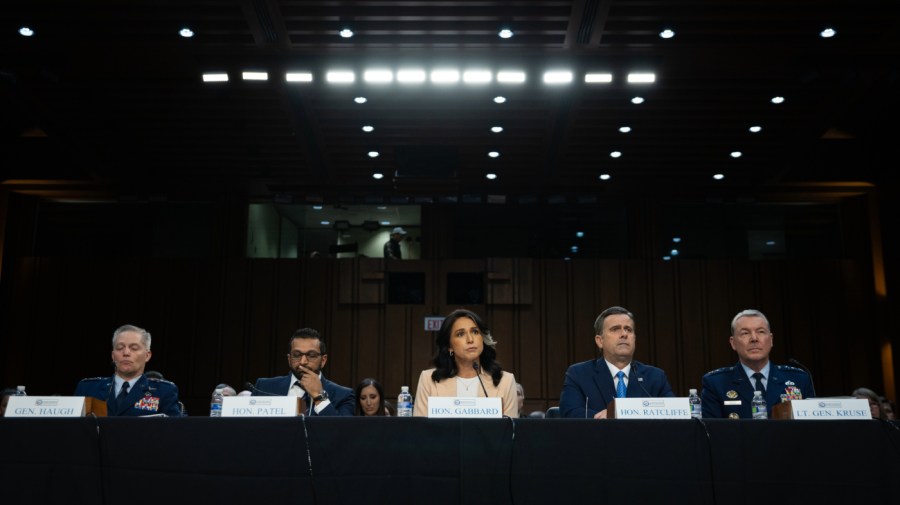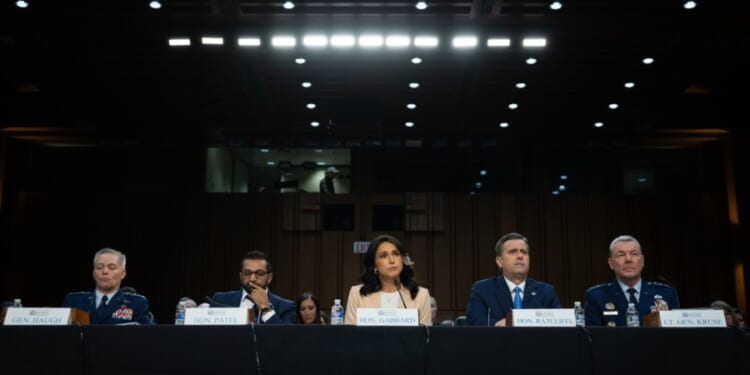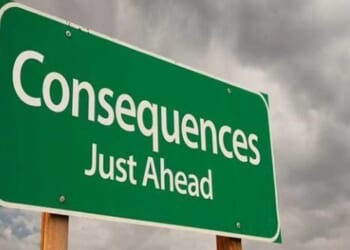
It is almost impossible to believe that more than a dozen of the Trump administration’s most senior officials would convene on Signal to approve a strike on Yemen. Why? Three reasons: security, security and security.
Yet this happened. So the first questions are why and what are the immediate and longer-term consequences?
By way of context, during World War II in 1942, the U.S. Navy intercepted Japanese radio traffic and concluded that their target was Midway Island using basic signals analysis research. Don’t China, Iran, North Korea, Russia and the United Kingdom also do this?
It’s a safe bet that Atlantic Editor in Chief Jeffrey Goldberg, who was incredibly included in these communications, was not the only outside eavesdropper.
Second, National Security Advisor Mike Waltz was a retired Army Reserve colonel. It is difficult to understand that, after all the security clearance documents he would have signed regarding handling classified material, using Signal would not seem like a problem.
Director of National Intelligence Tulsi Gabbard, a Reserve lieutenant colonel, should have possessed the same caution. Yet no one did.
Third, why?
Any White House is affected by groupthink and the understandable reaction of conforming to the commander-in-chief. In that regard, President Trump has not proven to be the best steward of classified information, going back to storing very sensitive material in insecure Mar-a-Lago rooms and closets.
Why would his staff not follow this lead, as this was easier than using the very secure other means of communications?
Does this matter? The administration was in full defensive crouch in congressional hearings trying to make the impossible argument that none of this was classified.
Having served in the Vietnam War, I can attest that if the time of a raid or the start of an operation in which I was involved were leaked in this manner, any sensible commander would have scrubbed the mission. Even the North Vietnamese then had good electronic surveillance.
So yes, it matters.
First, disregarding basic security is against both the law and against professional intelligence practices. Second, showing such disdain toward security cannot promote good order and judgment in the ranks. Third, what happens in the ranks if juniors commit the same errors and demand that, as with the secretary of Defense, no punishment or sanctions be applied?
Our allies will take this very, very seriously. Put yourself as head of one of our “Five Eyes” intelligence services in Australia, Canada, New Zealand or the U.K. Suppose you have life-threatening intelligence from one of your agents warning of a massive threat. You would be reluctant to endanger that person or source, given how casually the president and his team appear to be towards security. That is natural.
Other questions also need answers. In intelligence, the rule is check, check and double-check again. Were any unauthorized personnel other than Goldberg on the call? And who was the one checking?
Finally, while the call was to approve the raid, it did not appear that any military personnel from Central Command in charge of the strike or the Joint Chiefs were present. Supposing someone questioned collateral damage or intelligence that had changed, who was going to provide the operational military response?
Last, one of the participants posted emojis registering deep insensitivity to the human costs of war. Whether or not Navy F-18 pilots were at risk on the mission, flying off aircraft carriers is not like taking a taxi cab. It is inherently dangerous.
And on the ground, people were killed. Taking out an enemy is one thing. But suppose there was collateral damage and civilians were killed or wounded.
This is no time for such a casual reaction to the use of lethal force that suggests a certain immaturity and superficiality in senior officials engaged in matters of determining life and death. And to the public, this may seem like clowns in action and an example of how the government does not work. That is understandable.
But make no mistake: Whether this is a one-off error in which no one will be held accountable or not, this is serious as it demonstrates that the administration is not professionally prepared yet for conducting what are ultimate acts of using force. And where is the on-the-job training?
The buck stops with the commander-in-chief. If he does not take this very seriously, worse will happen.
Harlan Ullman Ph.D. is UPI’s Arnaud deBorchgrave Distinguished Columnist, a senior advisor at the Atlantic Council, the chairman of two private companies and the principal author of the doctrine of shock and awe. He and David Richards are authors of the forthcoming book, “The Arc of Failure: Can Decisive Strategic Thinking Transform a Dangerous World.”











